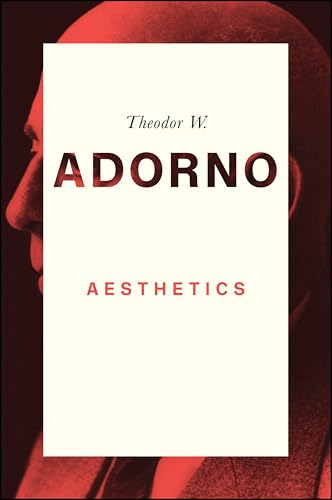Aesthetics
Theodor W. Adorno
BOOK REVIEW

Taking a plunge into Aesthetics by Theodor W. Adorno is akin to stepping into the chaotic heart of modernity itself. This is not merely a book; it's a philosophical foray that wrestles with the fabric of art and culture against the backdrop of an increasingly commodified world. In a tantalizing dance through art's intricacies, Adorno's magnum opus compels you to confront the very essence of aesthetic experience, unraveling the layers of meaning and significance that define our cultural landscape today.
Adorno, an influential figure of the Frankfurt School, deftly critiques the implications of aesthetic theory amidst the rise of capitalism and the pervading alienation that ensues. His reflections emerge from a turbulent historical context-post-World War II Europe, where both art and consciousness were grappling with the weight of past atrocities. Here lies the crux of Adorno's argument: art must transcend mere functionality and consumerism, serving instead as a site of freedom and critical thought. He positions aesthetics not only as an experience of beauty but as a crucial battleground for social critique-where art can challenge oppression and ignite contemplation.
As readers delve into the pages, prepare for a thought-provoking journey that feels like a dialogue with a wise yet stringent mentor. Adorno's prose is dense, yet it pulsates with vigor and insight, eschewing simplistic interpretations of beauty. His text calls to you, urging you to understand that the function of art is not to please but to provoke-to awaken the consciousness buried beneath the mundane layers of daily existence. Adorno's sharp intellect and tangible frustration with the status quo leave a lasting impression, as he grapples with the alienation engendered by capitalist societies.
Responses to Aesthetics have been as diverse as the reactions to a controversial piece of abstract art. Some readers find themselves invigorated, inspired by Adorno's challenging ideas that resonate with contemporary debates on commodification in art. Others are left bewildered, grappling with the author's complex arguments and allusions. The debates among critics regarding his position-whether it liberates or restricts artistic expression-echo through academic corridors and social circles alike. Adorno's naysayers often label his work as overly pessimistic, accusing him of dismissing the transformative potential of art in favor of an elite philosophical discourse. Yet, therein lies the beauty of Adorno's approach-his relentless pursuit of questioning the received truths forces us to face uncomfortable realities, compelling us to reassess our understanding of beauty in an age of disillusionment.
What emerges from Aesthetics is a powerful rallying cry for a return to art's subversive roots. Adorno implores us to confront the commodification of culture head-on, to reject superficial understandings and engage more deeply with the narratives and emotions that shape artistic expression. As you read, feel the pulse of every sentence urging you to critically engage with both art and the world around you. This is a text that invokes strong emotional responses; it can stir up feelings of frustration at the systemic failures of our culture while igniting a fervent desire for a more profound, critically engaged experience with art.
In a world where cultural consumption often prioritizes fleeting trends over lasting meaning, Adorno's Aesthetics is nothing short of a revelation. It binds together art history, philosophy, and social thought, inviting us to view aesthetics as a reflection of our inner lives and societal structures. As you immerse yourself in this work, remember: it challenges you not just to be a passive observer of culture, but an active participant in redefining its purpose.
Are you ready to engage with a mind as daring as Adorno's? The intellectual journey through Aesthetics may very well transform your perception of art and its relevance in today's world, leaving you not only enlightened but also enriched. Don't let this opportunity pass-discover the beauty of questioning and the revolutionary power of aesthetics as you read on.
📖 Aesthetics
✍ by Theodor W. Adorno
🧾 376 pages
2017
#aesthetics #theodor #adorno #TheodorWAdorno